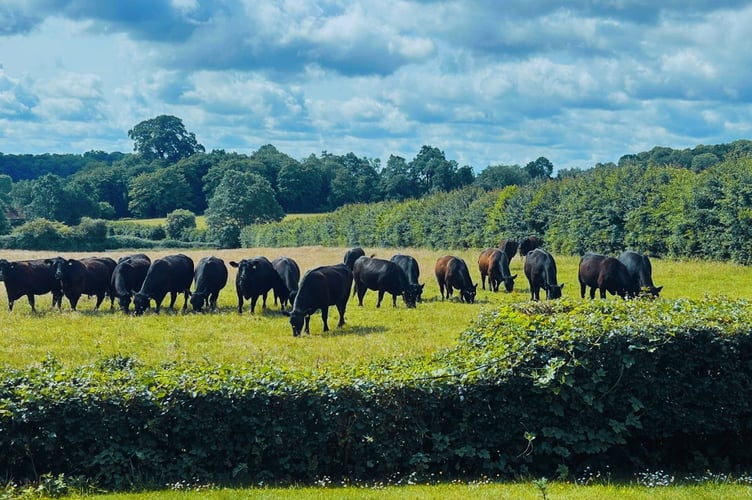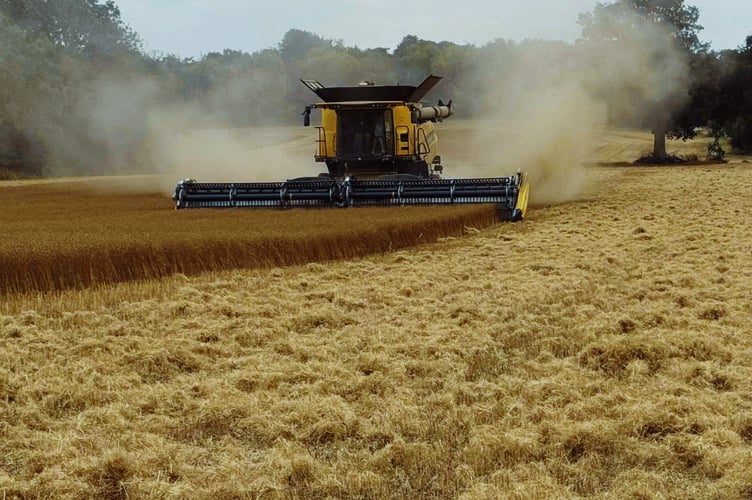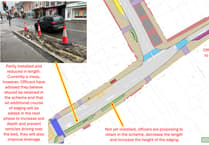From the rolling hills of the North Downs to the green fields around Witley and Elstead, farming is stitched into the heritage and heartbeat of South West Surrey. Either side of the A3 lies working farms producing our milk, grains, fruit, and meat. These farms don’t just shape our landscape – they feed us, employ local people, and sustain a fragile rural economy.
But right now, that way of life is under threat.
The new Labour government’s policy changes, particularly to inheritance tax, could deal a devastating blow to local farmers already battling rising costs, climate uncertainty, and urban pressure. Unless we act, both locally and nationally, we risk watching a centuries-old tradition slip away.
The government’s proposed reforms to Agricultural Property Relief (APR), set to take effect in 2026, would strip away inheritance tax protections for farmland valued above £1 million. On paper, it may sound fair. In practice, in a county like Surrey, where land values are among the highest in the country, it could be ruinous.

Even modest family farms around Chiddingfold, Dunsfold, or Godalming, known for soft fruit and traditional mixed farming, are now worth well over that threshold. Many face enormous tax bills simply for trying to pass their livelihood on to the next generation.
Take Angus Stovold, whose family has farmed in West Surrey since 1880. From Farnham to Elstead and Thursley, each generation has worked the land and passed it on but with land values soaring and tax relief shrinking, their legacy is under threat.
“We’ve had to sell the principal farmhouse every generation just to cover inheritance tax,” he says. “My father, grandfather, and great-grandfather all went through it. And if I were to die now, we’d have to sell the entire operation. Even over 10 years, we couldn’t earn enough to pay the bill. We’re asset-rich but cash-poor.”
His farm doesn’t exist in isolation. It supports local contractors, suppliers, and the village shop. It provides affordable housing, contributes labour and equipment for community needs, and maintains a working landscape in an increasingly built-up area.
Yet the pressures keep piling on.

“The Surrey Hills are now so expensive and urbanised that I’m farming in isolation,” he adds. “There’s no local abattoir and operating costs are much higher than elsewhere in the country. If we sold the land, it wouldn’t go to another farmer, it would go to a developer. The countryside would be lost.”
This isn’t just one family’s story. Another local farmer – part of five generations on the same land – now faces an uncertain future due to the same looming tax changes.
“If these proposals go through,” he says, “you’ll decimate the rural economy. Ministers say family farms won’t be affected, but I don’t know a single one around here that wouldn’t be. And once it’s gone, it’s gone for good.”
CLA South East Regional Director Tim Bamford adds: “To be clear, this is a tax burden on businesses, not wealth – delivered without consultation and with derisory engagement. Farmers and family businesses are the backbone of the economy and deserve to be heard by a government that seems hell-bent on pressing ahead, indifferent to the slow but inevitable train crash.”
The danger extends beyond inheritance. New entrants to farming, those dreaming of a life working the land, face nearly insurmountable financial barriers. Without inherited capital, setting up a farm in Surrey is virtually impossible. The result? Fewer family farms, more consolidation, more development pressure, and greater reliance on food imports.
Even efforts to modernise and green farming practices are faltering. The recent, unannounced freeze on applications to the Sustainable Farming Incentive has left many local farmers stranded. Across the Surrey Hills, farmers had prepared to adopt low-impact techniques to boost biodiversity and soil health, relying on promised support. That support has vanished, leaving them in limbo, absorbing the costs and uncertainty alone.
As Lizzie Hacking of the Conservative Rural Forum puts it: “More than most businesses, farmers already live with constant uncertainty, from weather to prices to everyday challenges. Now they face a government pulling the rug from under their feet. Instead of helping them feed the nation and care for our landscapes, we’re pushing them to the brink.”
To make matters worse, Labour ministers have floated proposals to take some farmland out of food production altogether – either to rewild or reclassify it as “Grey Belt” ripe for development. The message this sends is loud and clear: farming is no longer a national priority.
But it is a priority here.
In South West Surrey, farming matters. It supports markets in Haslemere, Farnham and Godalming, sustains public footpaths and green spaces, and binds communities together. When local farms disappear, we don’t just lose businesses – we lose part of our cultural, ecological, and economic identity.
Farming isn’t just a picturesque backdrop for weekend walkers. It’s a way of life, a source of local pride, and a pillar of community resilience. We must not let distant policymakers in Whitehall decide that it no longer matters.
If we want a future where Surrey still grows its own food, supports family businesses, and protects its rural heritage, now is the moment to act. That means fighting for fairer tax treatment, securing proper funding for sustainable farming, and giving our farmers the tools they need to thrive – not just survive.
Because once it’s gone, it’s gone.





Comments
This article has no comments yet. Be the first to leave a comment.